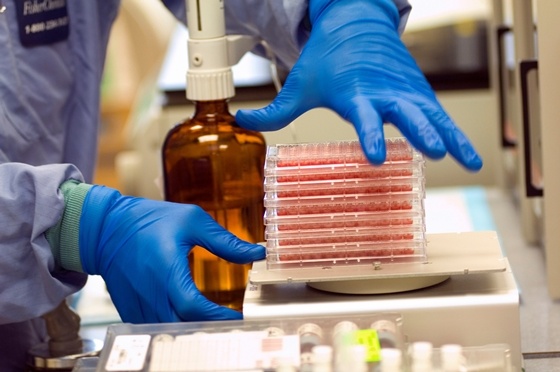
Scientists in the United States have managed to create manufactured stem cells that will help to quickly advance stem cell research. This new research was backed by the National Institutes of Health and will allow scientists to easily create clinical-grade stem cells for research purposes.
The manufactured stem cells may be able to accelerate the speed of the stem cell research being performed by scientists around the world. There are currently dozens of research projects underway which look at using stem cells to treat conditions like Alzheimer’s disease, Parkinson’s disease, spinal cord injuries, diabetes, macular degeneration, and Multiple Sclerosis.
The manufactured stem cells were created by first isolating human umbilical cord blood stem cells, then coaxing them back into a pluripotent state — where they are capable of turning into any other type of cell. These cells are called induced Pluripotent Stem Cells (iPSCs).
Having “clinical-grade” stem cells available is important because they can be used for clinical applications in humans — unlike laboratory-grade stem cells which cannot. Once researchers have a steady supply of clinical-grade stem cells available, they can use them for any purpose and can begin human trials more easily.
Stem cell research has already progressed at an incredible rate, with recent breakthroughs including the reversal of diabetes in mice and the restoration of limb function in mice with spinal injuries. Having clinical-grade stem cells readily available helps researchers to take successful animal trials and try them on humans very quickly.
The NIH and the Regenerative Medicine Program were key drivers of this project. Their goal is for manufactured stem cells to help researchers extend their trials to humans earlier and develop new stem cell treatments.
Source: Manufactured stem cells to advance clinical research
{{cta(‘010124f3-c9bc-4a23-b9fc-74953e6288c9’)}}


